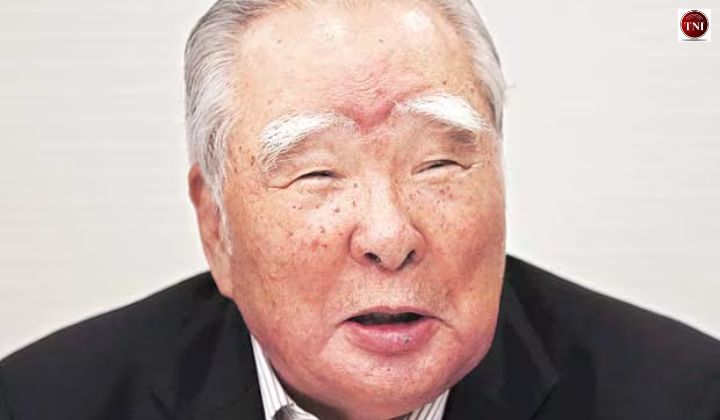TNI Bureau: Osamu Suzuki, former CEO and chairman of Suzuki Motor Corporation, died on December 25 at 94 due to lymphoma. Known for his frugality and strategic vision, he led the company for over four decades, transforming it into a global powerhouse and a leader in India’s car market.
Under Suzuki, the company expanded beyond Japan, where its affordable 660cc minivehicles thrived due to tax benefits. Suzuki’s cost-cutting measures, such as lowering factory ceilings to save on air-conditioning and flying economy class, defined the company’s culture.
Born Osamu Matsuda, he took the Suzuki name through marriage, a common practice in Japan for families without a male heir. He joined the company in 1958 and became president in 1978. Suzuki played a key role in saving the company in the 1970s by securing a partnership with Toyota to meet emissions standards.
His leadership shone with the 1979 launch of the Alto minivehicle, a major success that elevated Suzuki’s global standing and led to a partnership with General Motors in 1981.
Expressing condolences, Prime Minister Narendra Modi wrote on ‘X’, “Deeply saddened by the passing of Mr. Osamu Suzuki, a legendary figure in the global automotive industry. His visionary work reshaped global perceptions of mobility. Under his leadership, Suzuki Motor Corporation became a global powerhouse, successfully navigating challenges, driving innovation and expansion. He had a profound affection for India and his collaboration with Maruti revolutionised the Indian automobile market.”
Deeply saddened by the passing of Mr. Osamu Suzuki, a legendary figure in the global automotive industry. His visionary work reshaped global perceptions of mobility. Under his leadership, Suzuki Motor Corporation became a global powerhouse, successfully navigating challenges,… pic.twitter.com/MjXmYaEOYA
— Narendra Modi (@narendramodi) December 27, 2024
Support Independent Journalism? Keep us live.
Transforming India’s Auto Market
Suzuki made a bold move by investing a year’s profits to establish a car maker in India, driven by his desire to “be number one somewhere in the world.” At the time, India’s car market was underdeveloped, with annual sales below 40,000. The government-owned Maruti Udyog sought a foreign partner after a failed collaboration with Renault.
Suzuki initially declined but reconsidered after hearing about Maruti’s talks with Daihatsu. Swift negotiations led to a partnership, and the Maruti 800—based on the Alto—debuted in 1983. Its affordability and efficiency made it an instant hit. Today, Maruti Suzuki holds 40% of India’s car market.
Suzuki also championed equality at Maruti by introducing open-plan offices, a single canteen, and identical uniforms for all employees.
Not all ventures succeeded. A 2009 partnership with Volkswagen ended in conflict over control and strategy. Suzuki Motor later repurchased its shares from VW after arbitration in 2015.
Suzuki stepped down as CEO in 2016, handing the reins to his son Toshihiro, but remained chairman until 2021 and an advisor until his death. Known for his wit, he often joked he would stay with the company “forever” or “until the day I die.”


Comments are closed.